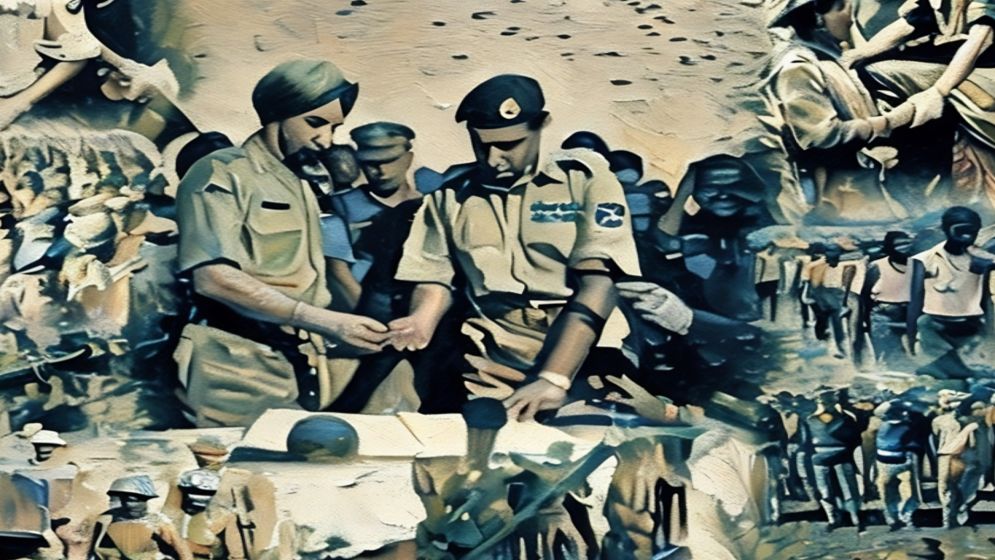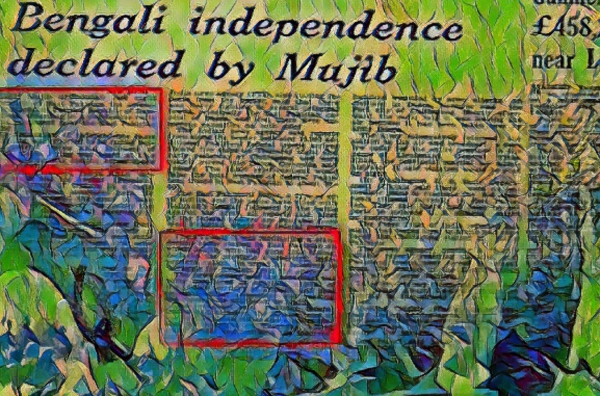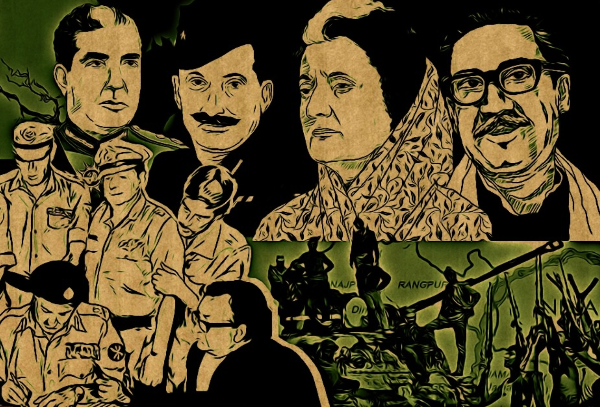Is Bangladesh truly ready to confront its complex history?

On August 5, 2024, Bangladesh witnessed a transformative uprising that brought an end to the fifteen-year rule of Prime Minister Hasina, which the new government has criticized as “fascist.”
This shift has sparked hopes for a significant change, with many envisioning a future where the events of 1971—the year Bangladesh gained independence from Pakistan after a brutal nine-month conflict—are no longer the focal point of the nation’s politics.
Since its founding, Bangladesh has been deeply influenced by the legacy of 1971.
Under Hasina's leadership, this legacy was often used to intensify divisions within the country, particularly along Islamist and secularist lines, a situation exacerbated by the global climate of Islamophobia stemming from the war on terror.
During her administration, a controversial court in Dhaka sentenced six prominent opposition figures, deemed Islamists, to death for their alleged collaboration with Pakistan during the war. Many others faced life imprisonment until their deaths.
The state-sponsored narrative surrounding Bangladesh's birth simplifies the story: Pakistan is cast as the villain, Bangladesh as the hero, and those labeled "Islamists" as collaborators with the oppressor.
However, the true historical landscape is far more nuanced.
Not all residents of East Pakistan, now Bangladesh, supported the “separatist movement” in 1971. The enduring opposition to the idea of independence, even decades later, underscores the civil war's complex and contentious nature.

Why is the discourse still very much
alive?
The persistence of discourse about Pakistan within Bangladesh is only possible if there remains a segment of the population sympathetic to Pakistan.
Thus, the conversation surrounding Pakistan and Bangladesh is primarily one among Bangladeshis themselves, rather than solely between Bangladeshis and Pakistanis.
When the number of those questioning the notion of Bangladesh grows so large that it prompts their opponents to curtail democratic processes—culminating in Hasina’s regime, which positioned itself as the champion of pro-Pakistani sentiment—it raises questions about whether the majority truly endorses the concept of Bangladesh.
This situation could suggest one of two things: either a significant portion of the population harbors doubts about the nation's existence, or the divisive, 1971-focused politics have turned many Bangladeshis into "discursive refugees," labeled as anti-Bangladesh.
The widespread labeling of dissenters as anti-Bangladesh has become a rallying point for uniting the populace against Hasina’s authoritarian rule, mirroring a narrative often supported by India's (neo)colonial interests, which tends to categorize everyone in Bangladesh, except for Hasina, as Islamist.
India's establishment has a vested interest in maintaining this 1971-centric division, as it reinforces its image as Bangladesh’s protector against Pakistan.
If the significance of 1971 were to diminish in Bangladeshi politics, it would significantly undermine India's influence in the country.
Efforts are ongoing to uphold this divisive narrative, particularly among Bangladesh's urban middle class.
There is a widespread notion that mostly pro-India factions or the people who subscribed to the problematic binary narratives propagated by Hasina regime have criticized former Bangladeshi General Abdullahil Aman Azmi, who recently proposed changing the national anthem written by Rabindranath Tagore and reassessing the death toll from the 1971 war.
After Hasina sought refuge in India, General Azmi was released from one of her secret prisons, where he had been held since 2016. His father, Ghulam Azam, a leader of the second-largest opposition party, Jamaat-e-Islami, received a 90-year sentence from the aforementioned controversial court for his pro-Pakistani stance during the war.

The “untouchable” issues
A particularly sensitive issue is the death toll from 1971. For those invested in the nationalist narrative, the figure of three million is sacrosanct.
Challenging this number could not only reveal the exaggerated nature of the nationalist history but also expose one of the darkest chapters in Bangladesh’s past: the violence against the Bihari community.
In sharp contrast to the state-sponsored narrative, Bangladesh was not entirely blameless during the events of 1971.
Pro-Bangladeshi groups began targeting the Bihari community—Urdu-speaking immigrants from India—with violence and looting even before the war officially started, and this continued long after it had ended.
The Bangladeshi government enacted an indemnity order aimed at protecting those who committed war crimes and acts of violence against those perceived as anti-Pakistani, offering blanket amnesty for actions taken between March 1, 1971, and February 28, 1972.
Notably, the Pakistani army's crackdown did not commence until March 26, 1971—the day Bangladesh declared its independence—making the indemnity for events occurring before that date indicative of violence perpetrated by some within the pro-independence movement.
Even if we set aside the notion that Bangladesh was the first to strike, there is widespread agreement that the Biharis were subjected to mass violence during and after the war, although the exact number of victims remains disputed.
Anti-Bihari sentiment was so deeply ingrained in Bangladeshi nationalism that a group of fighters nearly killed the brother of editor Mahfuz Anam, mistaking him for a Bihari.
Among that group was Rumi, who later fell victim to enforced disappearance by the Pakistani military.
His mother, Jahanara Imam, became a prominent figure in urban Bangladesh for portraying Ghulam Azam as a war criminal. This irony is not lost on the younger generation in Bangladesh.
With a new political landscape emerging in post-Hasina Bangladesh, the entrenched right-wing nationalist narrative faces a significant challenge, and India appears eager to protect it. General Azmi’s call to revisit historical accounts may have opened a contentious debate.
In 2016, when Amnesty International urged for justice for all victims of the 1971 war, irrespective of their political affiliations, the Bangladeshi civil society condemned the initiative, recognizing its potential to disrupt the simplistic good-Bangladesh versus bad-Pakistan narrative.
The recent uprising offers an opportunity to confront Bangladesh's complex past in its entirety: the good, the bad, and the ugly.
The pressing question remains: Will India allow this reckoning to unfold in its most valued ally's territory?
—-
Md Ashraf Aziz Ishrak Fahim has a first degree in International Relations and Global Affairs from Mahidol University, Thailand, and an MA in Social and Political Thought from the University of Leeds, UK. He is currently a graduate student of Contemporary Islamic Studies at Hamad Bin Khalifa University in Qatar. He can be reached at mdfa48907@hbku.edu.qa

